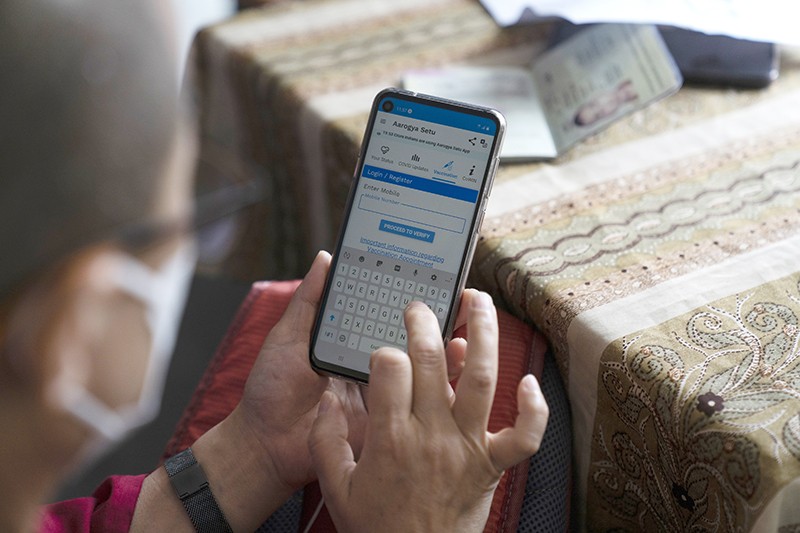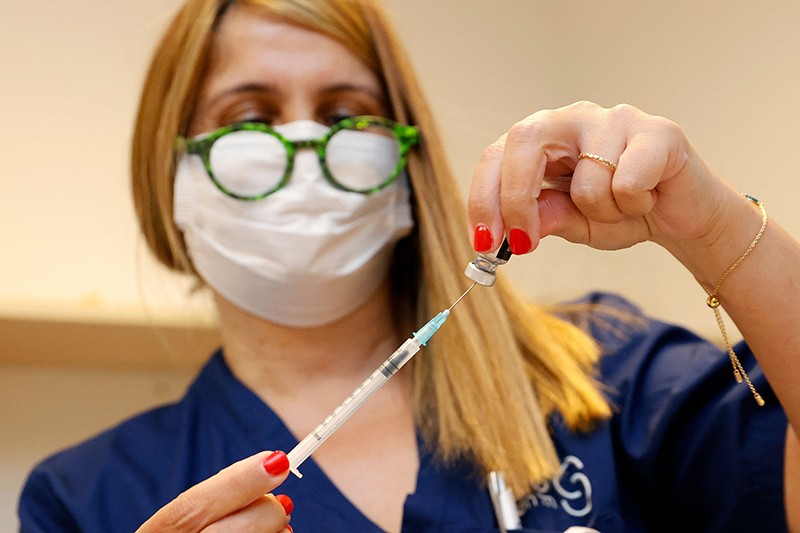Coronavirus rife in common US deer
One-third of white-tailed deer (Odocoileus virginianus) in the northeastern United States have antibodies against SARS-CoV-2 — a sign that they have been infected with the virus.
The findings, reported in a preprint on 29 July (J. C. Chandler et al. preprint at bioRxiv https://doi.org/gmc8t6; 2021), represent the first detection of widespread exposure to the virus in a population of wild animals.
There are concerns about the emergence of new animal ‘reservoirs’ — animal populations that harbour SARS‑CoV-2. Previous laboratory experiments have shown that white-tailed deer can become infected with the coronavirus and transmit it to other deer. In the wild, the animals live in herds, which could make it easier for the virus to spread.
Scientists at the US Department of Agriculture in Fort Collins, Colorado, and Ames, Iowa, tested 385 deer blood samples collected as part of regular wildlife surveillance between January and March 2021 in Michigan, Pennsylvania, Illinois and New York state. They found that a striking 40% of the samples contained SARS-CoV-2 antibodies, which are produced in response to infection. None of the surveyed deer showed signs of illness.
The testing of archived samples also turned up antibodies in three samples from early 2020, when SARS‑CoV-2 was beginning to circulate in the United States. All told, one-third of the 2020 and 2021 samples had antibodies for the virus.
It is not clear how the deer were exposed. It could have been through contact with people, other animals or even contaminated wastewater.
Researchers say that the rapid exposure of a large number of animals to the virus is concerning, but that more studies are needed to assess whether the deer can infect each other — and other species — in the wild. “It’s an intriguing observation but still needs to be interpreted with caution,” says Aaron Irving, an infectious-diseases researcher at Zhejiang University in Haining, China.
Text nudge can increase COVID vaccinations
A short text message reminding people to book a COVID-19 jab can boost vaccination rates by several percentage points, according to a study of more than 90,000 people in California.
A reminder sent one day after individuals became eligible for the jab boosted appointments and vaccination rates by 6 percentage points and roughly 3.6 percentage points, respectively, compared with rates in a separate group that did not receive the reminder (H. Dai et al. Nature https://doi.org/gqtk; 2021). A second reminder to those who still hadn’t booked a vaccination appointment a week later boosted appointments and jabs by another 1.7 and 1.1 percentage points, respectively.
The researchers tested reminder texts consisting of two different wordings, which were sent to members of a large health-care system. Some people received a ‘basic’ reminder telling them that they could get the vaccine. Others received an ‘ownership’ reminder telling them that a vaccine had “just been made available” to them, with instructions on how to “claim” their dose.
The ownership reminder was more effective: when sent one day after people became eligible for the vaccine, it raised the recipients’ vaccination rates by about 4.1 percentage points, compared with a 3-percentage-point increase for the ‘basic’ reminder.
These small gains, if applied to a large population, could speed up vaccinations for millions of people, the authors say.
Blood marker predicts breakthrough COVID cases
People fully vaccinated against COVID-19 are less likely to become infected with the coronavirus if they have relatively high levels of virus-blocking antibodies, according to a study of more than 10,000 health-care workers who received the Pfizer–BioNTech jab (M. Bergwerk et al. N. Engl. J. Med. https://doi.org/gmc77b; 2021).
The analysis adds to a growing body of evidence that a person’s levels of ‘neutralizing’ antibodies, which block SARS‑CoV-2 from infecting cells, predict whether that person will become infected.
A robust predictive marker could help regulators to approve new vaccines without requiring large clinical trials. It could also help them to assess the need for booster shots to guard against emerging viral variants. The study “is an important step in further validating the use of neutralization titre”, says Miles Davenport, an immunologist at the University of New South Wales in Sydney, Australia.
But the analysis does have drawbacks. It is based on a small number of cases among young and healthy adults, limiting its application. It also doesn’t suggest a particular level of antibodies that is associated with protection.







More News
Could bird flu in cows lead to a human outbreak? Slow response worries scientists
US halts funding to controversial virus-hunting group: what researchers think
How high-fat diets feed breast cancer